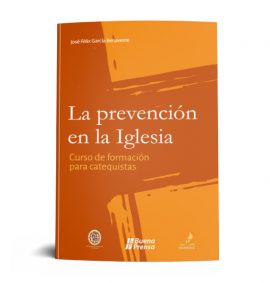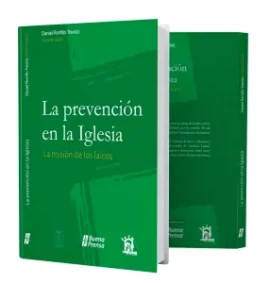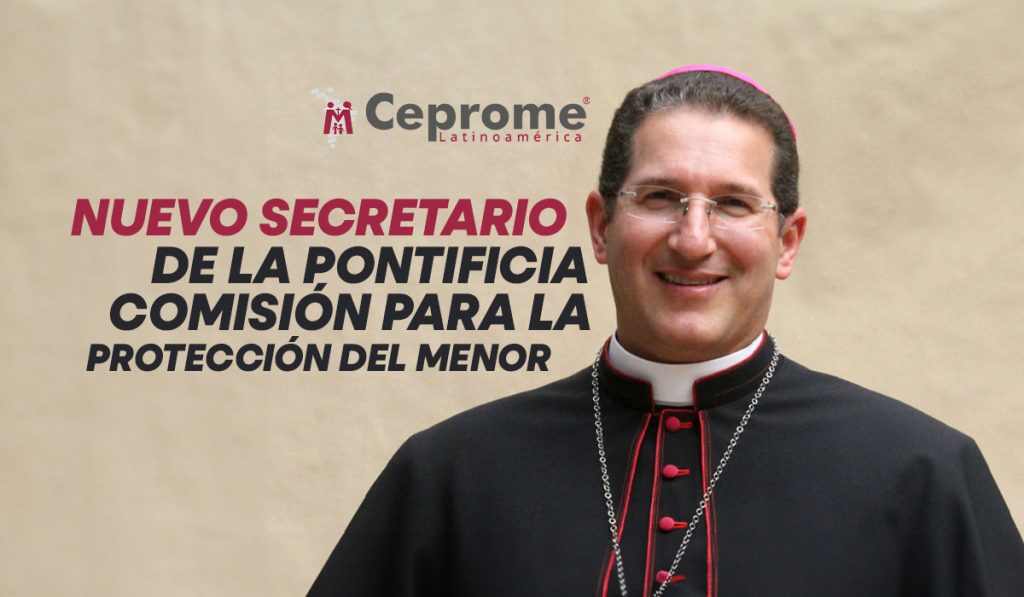Blog
COMMUNICATION WITH VICTIMS: DR. DANIEL PORTILLO
- 30/06/2020/
- Publicado por: Redacción Ceprome
- Categoría: Artículo
Communication with victims
An ecclesiological reflection on communication
Daniel Portillo Trevizo
México
I have been invited to share something that I have been asking myself in recent days: How to communicate with victims? And I have also questioned whether our ecclesial communication towards them is the most appropriate.
Sexual abuse of minors committed within the Church is a betrayal to proper communication. We did not know how to look at the risk, nor listen to the clamor of the victims. It is up to the Church to acknowledge with regret her negligence, to examine her closeness in the most tragic human situations, to assess whether her current mission in the world is to protect her faithful or, on the contrary, it shows a passive church in facing the acts of injustice on human dignity.
When The church is deaf to listen to the cry of the oppressed by suffering and pain, it becomes, as Pope Francis pointed out, “A Church always on the defensive, which loses her humility and stops listening to others, which leaves no room for questions, loses her youth and turns into a museum. How, then, will she be able to respond to the dreams of young people? Even if she possesses the truth of the Gospel, this does not mean that she has completely understood it; rather, she is called to keep growing in her grasp of that inexhaustible treasure” (CV 41). So far, the Pope’s words. A defensive Church undoubtedly leads to the disillusionment that kills the joy of the faithful and distances them from their Catholic faith.
Unquestionably, when the Church corrupts in how it should communicate to the victims, it runs the risk of closing in on itself and becoming self-referential. The structural corruption of the Church will always be a pathological “centralism” that will undoubtedly provoke a deafening and self-referential ideological discourse, an ecclesial monologue, a permanent and castrating silence. An ecclesiological discourse of this tendency is incapable of witnessing the protection of minors and vulnerable people, in a world increasingly in need of true globalization of prevention and healthy communication. The Church will not be exaggeratedly aware of itself, the more it remembers it mission in the world: to be an authentic path of communication.
Particularly, the crisis of clerical sex scandals involving minors has immersed the Church in serious institutional reflection; the scandals have ceased to be considered only a personal responsibility of the perpetrador and, therefore, have demanded a systemic view that expands the space of responsibility more honestly. Any fault committed by some member of an institution, such as the Church, is uncomfortable, also for the system, therefore, it can also be a sign of the underlying theological problem at the ecclesial level.
It is not only devastating to find ecclesial contexts commanded by negligence and lack of transparency, but it is also discouraging to coincide with those who are disorganized, unstructured, and, consequently, with a lack of communication. It is not strange that these ecclesial environments, far from any way of communication and not open to dialogue, ending up in more dangerous environments of cover-up, negligence, and the performance of sexual acts by their members.
Communication is the key, is the letter of presentation of care and ecclesial protection. Prevention is the most formidable, universal, and mysterious force, inscribed in the heart of manhood, capable of transforming the world. Prevention is the gospel of tenderness. Tenderness, represents a fundamental way of communication to get out of this impasse and regain the most vivid sense of evangelical charity as loving affection. Therefore, communication with victims is the strength, the sign of maturity, and the inner vigor that springs only from a free heart, capable of offering the best that each human being has: his or her time.
Communication with victims supposes, in fact, the praxis of the Gospel of tenderness; It puts into crisis the way of being Christians, which is content only with a vague and superficial communication, a mediocre communication, without impulse nor enthusiasm and often without compassionate love. To communicate with the victims is to open a page of the Gospel, the Good News, a way in which God continually reveals Himself to us. Without the Gospel and Safeguarding Culture, our religious practice is hypocritical and cosmetic. Furthermore, outside the Gospel of tenderness, there is a permanent temptation to be or to return to being a Church of dominance, power, abuse of conscience, and elite, a Church incapable of communicating herself.
The Church that through its faithful communicates with the Gospel of tenderness, is a Church with the Word of God, that protects, that insists, on witnessing the love of God, with caresses that does not violate, with gestures that do not transgress, with details that are not ambiguous; a Church that puts the pedagogy of respect first, refusing all forms of domination or abuse. The Church of Tenderness is the Church of the preferential option for children and adolescents, for vulnerable adults, for victims of sexual abuse and the secondary victims. A Church, therefore, that listens, that communicates, that welcomes, can become a safe space where everyone can feel at home and experience that they are in a safe protective environment.
The communication of tenderness is an invitation to the Church to “exit” her intra-ecclesial comforts and to dare to reach all the ecclesial peripheries, where there are those victims and survivors who have suffered sexual abuse. Care and protection should be for any Christian a commandment of conduct that allows, on the one hand, to be close to others and, on the other hand, that teaches to respect the limits of their privacy. A Church that engages in dialogue with victims and survivors will announce the Good News with the seal of God’s protection and tenderness, building safe environments for those who comprise it.
The apostolate of prevention implies the ability to dialogue with pain, within each of these spaces or moments of helping. It is time to abandon our cosmetic actions where we only settle for showing society that we are doing something, without the slightest involvement. We say that prevention is a priority, however, in some ecclesial environments, we do not have the slightest interest in communicating with victims. The Church cannot expect significant changes if we continue with our same procedures. There are concrete actions that at this time cannot wait any longer, the integrity and dignity of minors cannot continue to be a second-rank priority.
The main charism of the Apostolate of Prevention is communication. It enables the rebuilding of the fabric of trust. Precisely, the scandal of sexual abuse has undoubtedly hurt and broken this value, especially in some of the realities where the victims suffered helplessness, persecution, lack of listening, and misunderstanding. If the Church does not strive to rebuild the fabric of trust, we could ask ourselves what the meaning of her presence in the future is.
Finally, as utopian as it may seem, what is needed is prevention, understood as the work of “conversion”; from this perspective, prevention is not limited to a timely intervention, but holistically encompasses the totality of what the Church does and teaches in coherence with what she believes, prays, celebrates and communicates. The issue of abuse leads us to think about our Safeguarding Culture. If we go back to the Gospel, the founding origin of our faith, we would understand that this ecclesial crisis has caused us a necessary “conversion of the way we treat each other” a “metanoia of communication”.
Safeguarding Culture dignifies, strengthens, consolidates, rebuilds, and unifies the person, makes him or her able to look at themselves again, discover themselves as valuable, and be able to communicate. In short, without the conversion of genuine Safeguarding Culture, prevention in the Church becomes concealment, a fallacy of protocol that translates into false actions and an inability to communicate.
Deja una respuesta Cancelar la respuesta
Libros Ceprome
Entradas recientes
Con gran alegría y reconocimiento el Centro de Investigación y Formación de Protección al Menor, CEPROME Latinoamérica, quiere compartir la noticia de la nominación por parte del Santo Padre Francisco de Mons. Luis Manuel Ali Herrera como secretario de la Comisión Pontificia para la Protección de Menores. El nombramiento se ha dado a conocer el 15 de marzo de 2024 en la Ciudad del Vaticano.
El 18 de Noviembre, se conmemora el Día Mundial contra la Explotación, Abusos y Violencia Sexuales contra los Menores de Edad, una jornada crucial para concientizarnos sobre un problema que afecta a millones de niñas, niños y adolescentes en todo el mundo. La explotación sexual infantil es una de las violaciones de los derechos de […]




